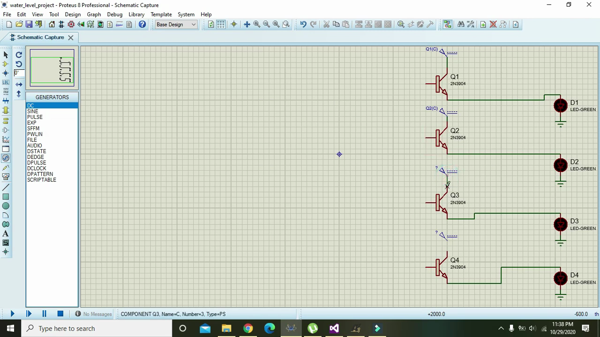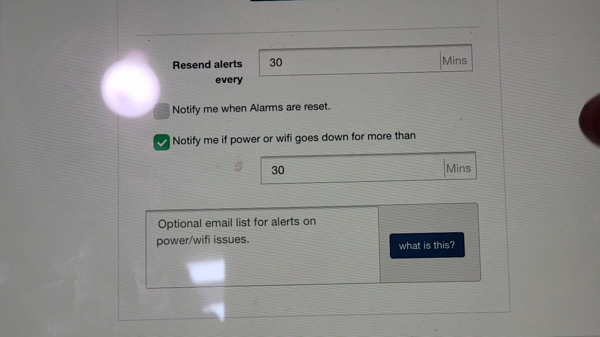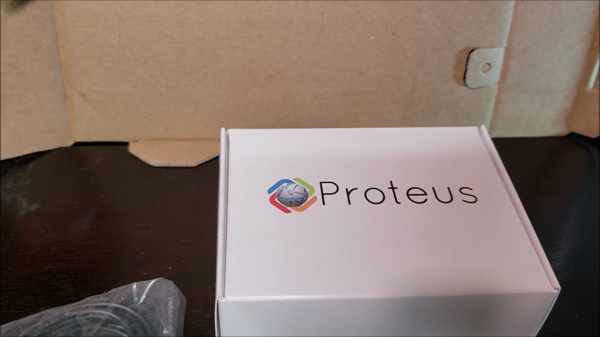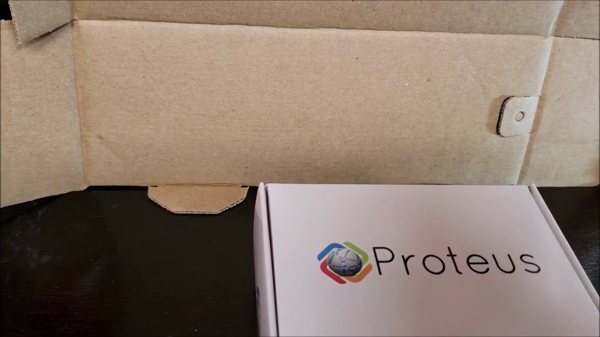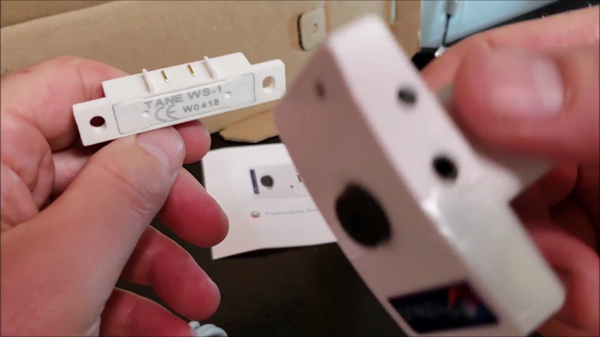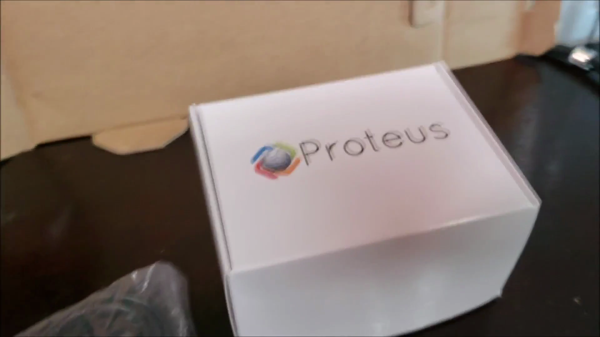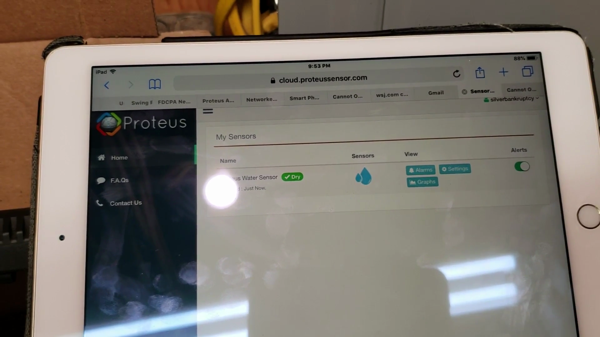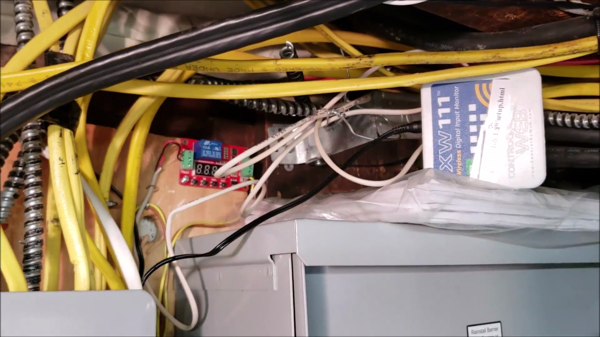Note: As an Amazon Associate I earn from qualifying purchases.
Using the Proteus AQUO WiFi Water Detector with Alerts (2024)
Introduction
I recently added the Proteus AQUO Wi-Fi water sensor to my smart home setup. As someone who values both high-tech solutions and a clutter-free lifestyle, finding a balance between advanced features and a simple, discreet design is important to me. This sensor promised a good fit for my minimalist approach to home technology; it’s designed to monitor for water leaks without the need for a hub and with no ongoing subscription fees.
Specifications
| Property | Value | Property | Value |
|---|---|---|---|
| Brand | Proteus | Power Source | Corded Electric |
| Compatible Devices | Smartphone | Product Dimensions | 3.5”L x 3.5”W x 1”H |
| Voltage | 240 Volts |
Photos
Click on photos to enlarge them:
Prices
Check prices of the Proteus AQUO WiFi Water Detector with Alerts on:
Initial Impressions and Ease of Setup
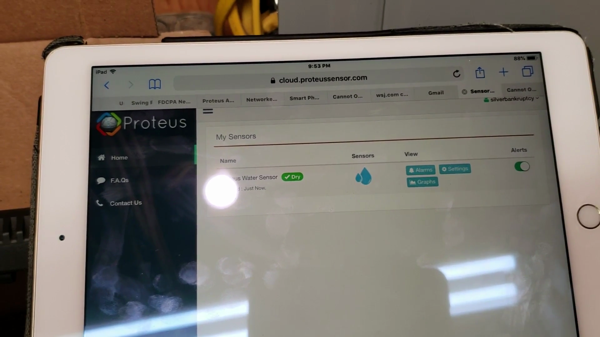
When considering the purchase of Proteus AQUO Wi-Fi water sensor, I weighed the pros and cons very carefully to determine if it would fit seamlessly into my smart home system while adhering to a minimalist approach. Below is my summarized experience:
Pros:
- No monthly costs, keeping it affordable in the long run.
Direct connection to Wi-Fi without using additional hubs.
Instant notifications sent directly to email or phone for prompt action and reassurance.
Simple Prose: This device is connected to a power source, eliminating the need for battery replacement.
Ease of Setup: The installation process was straightforward, from plugging it into the wall to configuring it via a phone or laptop.
Cons:
Wi-Fi Dependence: As it requires a power source and an active Wi-Fi connection, any outages can leave you without protection.
Cord Length: For some applications, the included cable may be too short, necessitating the use of an extension.
From a personal perspective, I found setting up the device easy and uncomplicated. It reminded me of popular smart home gadgets on the market. Within moments, I linked it to my home Wi-Fi and was prepared to receive alerts via my smartphone. The web portal offered a pleasant experience, user-friendly enough for non-tech savvy individuals to maneuver.
However, I faced some challenges with the device. The lack of battery backup for the peace of mind was a concern as it relied on consistent power and internet connectivity. Moreover, its cable length required me to get creative with placement or purchase an extended one for desired discreetness.
Despite concerns, the Proteus AQUO gave me a feeling of safety. Its loud buzzer and alert system worked during tests. I hope never to hear them due to leaks. The customer service availability also put my mind at ease with their reachable support number.
In terms of installation, it’s essential to check Wi-Fi signal strength at the intended location before purchasing a system. A weak signal can impact performance. Despite my home system having strong signals, others might encounter issues with weaker signals.
While there is no scientific evidence from research papers or universities about this product, my personal experience and stories of flooded basements have led me to focus on water detection. The Proteus AQUO seems valuable for my smart home due to its simple setup and instant alert system, even though it requires a consistent power and Wi-Fi supply.
Reliability and Performance in Practice

In my search for a dependable flood sensor, I came across the Proteus AQUO. My objectives were straightforward:
Pros:
The sensor was easy to set up and started working within minutes.
This device can connect to Wi-Fi directly without requiring extra hardware.
Immediate alerts; sends notifications directly to my phone via email and text.
Extensive support; customer service is just a call away.
Cons:
Wi-Fi devices have a limited range and may not work effectively in areas with weak signals.
The sensor cable is only 5 feet long. You might need an extension for best placement.
This device requires power to function. It does not have a battery backup, thus it will become inoperable during power outages.
In terms of functionality, I’ve found the Proteus AQUO water sensor impressive. It regularly alerts me when detecting moisture and its buzzer is sufficiently loud for my attention at home. However, its Wi-Fi dependency can impact its reliability, contingent on the stability of my home network. Yet, I haven’t encountered any Wi-Fi disconnection issues thus far. This could be due to securing strong signal strength during installation as suggested by the manufacturer.
One aspect to consider is that although there are no recurring fees for the sensor, there are optional paid features like voice call alerts available. Some people may view this as a disadvantage, but I personally value the flexibility of only purchasing extra services when they’re necessary.
Regarding customer support, Proteus is quick to respond which is helpful when dealing with smart home devices. The product’s dimensions are small, saving space by occupying only one wall outlet – a practical design choice for minimalist setups.
In summary, the Proteus AQUO is a suitable choice for my home’s water detection system. It offers a good balance between performance and simplicity. Although it could benefit from having a battery backup and a longer sensor cable, these are minor issues compared to its overall value. The Proteus AQUO is an excellent investment for anyone aiming to prevent water damage in their home.
Tackling Common Concerns and Misconceptions

When integrating the Proteus AQUO Wi-Fi water sensor into a smart home setup, it’s essential to address practical concerns and dispel any misconceptions. Here are common areas of inquiry:
WiFi Connectivity: It’s clear that the unit’s performance is heavily dependent on a stable wifi connection. Initially, I was concerned about potential connectivity issues, especially since the sensor would reside in the less-connected basement. To my relief, once I tested my phone’s wifi signal in the installation area, I was confident the sensor would stay connected as well.
The 5ft long sensor cable, which is equipped with a plug-and-play design, facilitated an effortless setup process. The length of this cable met my specifications, and I was pleased to discover that extensions were accessible if more cable was required.
Alert Notifications: Receiving emails as text messages for alerts from the sensor was a relief, as it eliminated concerns about extra costs. I’ve noticed no delays or missed alerts using this method, despite its dependence on third-party servers.
Customer Support: Having responsive customer support was crucial for my buying decision. Being able to reach out for help whenever needed gave me added peace of mind.
Certainly, there were drawbacks:
Power Dependency: The fact that the sensor needs a continuous power supply is double-edged. While this means no battery replacements, a power outage could render the unit inactive. A battery backup, like a UPS, became an essential addition for uninterrupted protection.
Sensor Sensitivity: The potential for false alarms due to high humidity initially made me second guess. However, learning that the sensor’s threshold can be adjusted eased my mind. It’s a handy feature and one that shows Proteus’s attention to user experience.
In the process of using certain devices, some users might find the visible cable bothersome during physical installation due to its unsightly appearance or length requirements. Despite not encountering substantial inconvenience myself, the importance of simplicity in specific setups cannot be overstated. Physical Installation often demands a careful consideration of cable management to ensure a clean and clutter-free environment.
From my experience, the Proteus AQUO is a useful device for detecting water leaks. Its web-based control center is strong and lets you adjust alert settings and check real-time status. Although it requires power and wifi, the advantages of early leak detection and avoiding potential water damage make it a worthwhile purchase for those who prioritize smart home technology.
Integrating Proteus AQUO into a Smart Home Ecosystem

Integrating the Proteus AQUO into my home ecosystem has been a generally trouble-free process. This compact device appeals to those who prefer minimalist designs in smart home technology. Here are its main features:
No hidden costs: This option is financially sensible with no monthly fees.
Prompt notifications: Receive timely alerts for free.
Quick setup: Installs in a few minutes without requiring extra hubs.
Wi-Fi connection: This device connects quickly to both 2.4GHz and 5GHz networks, ensuring a reliable Wi-Fi experience.
As a minimalist, I prefer devices that blend seamlessly into my living space without drawing attention. The Proteus AQUO meets this requirement as it can be hidden when not in use yet remains dependable to alert me promptly if there’s an issue with the water at home. Its design aligns with the minimalist aesthetic in both appearance and functionality, providing convenience and discreetness.
From a technical standpoint, its ability to hold up to two Wi-Fi networks is a boon for reliability within a smart home setup. Should one network fizzle, the Proteus will pivot to the secondary without skipping a beat. Its API support is particularly exciting for tech enthusiasts; it allows for custom applications and integration with other smart home systems, which could potentially streamline alerts and actions even further.
Regarding the alarm system, while the built-in siren with an audible alarm that is loud enough to be heard at home is sufficient for alerting you, the true benefit lies in remote alerts. For property owners with expansive land, the external siren, which emits a powerful and distinct audible alarm that is loud enough to be heard over long distances, is an ideal solution to cover greater distances and provide early warning of potential intrusions.
Now, let’s address the cons:
Requires power: This device won’t work during power cuts without being linked to a UPS (uninterruptible power supply).
Wi-Fi necessary: Like power, Wi-Fi is essential for receiving alerts.
Initial cost: It’s an investment that might seem high upfront for something you hope never to actually need.
With its convenient features, this system brings me peace of mind for smooth smart home integration. Its hassle-free installation and reliable network connectivity provide the reassurance I need for an integrated and efficient home automation experience. The web-based access offers a rich set of features that surprise me, sparing me from dealing with cumbersome apps when I prefer not to, all while contributing to my peace of mind.
As for customer support, it’s responsive and effective. I had queries regarding the setup process and reaching out to a live agent was hassle-free and provided valuable assistance. Support is frequently disregarded until necessary, but Proteus appears to acknowledge this.
Overall, the Proteus AQUO effectively complements a contemporary smart home. It performs its duties discreetly without causing inconvenience. Concerns regarding Wi-Fi or power dependency have been unfounded, as it has proven to be an indispensable part of my home safety setup.
